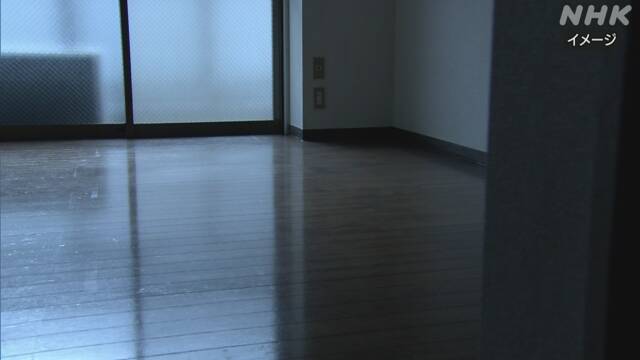90-fold increase in “Not payable rent” benefit application Impact of new corona September 9 at 6:02
The impact of the new coronavirus is prolonged, and the number of people struggling to pay rent is increasing rapidly.
According to a questionnaire survey conducted by NHK to 36 local governments nationwide, the number of applications for “Housing Security Benefits” that pay rent to people who lost their jobs has reached nearly 50,000 in the four months until July. It turned out that it was about 90 times higher than the same period of the year.
The "Housing Securing Benefit" is a system where local governments pay rent up to a certain amount for people who cannot afford to rent because they have lost their jobs.
Among the top 10 prefectures with the highest number of infected people, NHK conducted a questionnaire survey on 36 wards and cities, including 23 wards with a large population and ordinance-designated cities, and applied for the “Housing Security Benefits” application number. I calculated it independently.
As a result, we found that the total number of applications for benefits from April to July was 49,266, which was about 90 times that of the same period of the previous year.
In principle, the payment period is 3 months, and if the income has not recovered by that time, the payment period can be extended up to 9 months, but in the first 3 months it will not be possible to rebuild the life and from August It was also found that 56% of the people extended the payment period.
Takeshi Inaba, a visiting professor at Rikkyo University, who assists people in need of living, said, ``There are more and more people who are having trouble paying rent due to the prolonged economic crisis, but the period of payment of nine months of benefits is the year-end and New Year holidays. There is also concern that many people may run out and get lost on the road. The country should consider revising the system, such as extending the payment period, while there is no prospect of convergence of infection."
A flood of applications at the counter
People at the ward offices in Tokyo, who receive applications for "Housing Securing Benefits", are flooded with people who have lost their income and are having difficulty paying rent.
Among them, a man in his 50s working at a hotel was unable to enter the work shift due to a sharp decrease in foreign tourists, and the income that was nearly 200,000 yen a month before the spread of infection was in July and August. Is now zero.
Although he is living while saving his savings, he says that due to the deterioration of management on the hotel side, he is not paid leave allowances and is not expected to recover his income.
For this reason, the man has been receiving benefits from June, but he has been applying for another three months to extend his payment.
The man said, "The maximum payment period is 9 months, but I'm only worried that my income will recover by that time. The economic situation is worse and the savings are now more than around April when the infection spread. I'm almost at the bottom. I want you to extend my pay period a little longer."
Women in their 40s who work at restaurants temporarily recovered their income, which was zero in April and May, to around 100,000 yen in June, but most of the shift due to the spread of infection in July. I can't enter.
For this reason, the income in July dropped to about 60,000 yen again and applied for an extension of the benefit.
The woman thought, “When I applied for a benefit in May, I thought, “I can stabilize my income and return to my previous life in three months.” I'm wondering what to do because I can't pay my rent if I can't receive the benefits."
Great influence on working generations
In this survey, we also investigated the ages, the number of households, and the reasons for application for which the housing security benefits were decided during the four months until July this year.
Looking at the breakdown of the ages
,
▽30s
is the most common with 27%,
▽ under 30s and 40s is 23% respectively,
▽50s is 17%,
▽60s is 8%,
▽70s is 2% It can be seen that
people in a wide range of ages, especially those in the prime of work, are struggling to pay rent.
Looking at the breakdown of the number of households,
▽ Single-person households account for the majority (68%),
▽ Households with 2 people and households with 3 or more people
account for
16% each
, affecting
the
family class as well. You can see that has spread.
Since April 20, the Ministry of Health, Labor and Welfare has targeted not only "people who lost their jobs due to job separation or closure" but also "people whose income has decreased due to absence from work", etc. Lost 74% of their jobs due to leave and 26% of employees left or closed.

